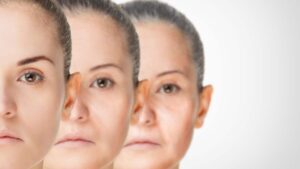CBD SKINCARE: IS IT ACTUALLY DOING ANYTHING?

CBD has gained a lot of attention in wellness, general anxiety feeling, and natural beauty. CBD is an abbreviation for cannabidiol, sourced from hemp. However, it doesn’t get you high the way its counterpart, THC, does. Most online discussions refer to it as non-psychoactive that relaxes the mind. Its benefits on people’s health and overall wellbeing are numerous. As a skincare ingredient, it’s mostly known for the calming effect that soothes and reduces skin redness. This article discusses how CBD benefits the skin and reviews various claims about it.
What Is CBD?
Cannabinoid, commonly known as CBD, is a naturally occurring extract from cannabis hemp. There are two main substances in this plant, CBD and THC- tetrahydrocannabinol, known for its psychotropic properties. Studies show that CBD has potential antioxidant and anti-inflammatory properties. It has also been recognized for reducing lipid production from sebaceous glands. In general, excessive sebum production is the major contributor to acne.
CBD It interacts with body receptors in the skin. The receptors stimulate the body in instances of itching and pain. For this reason, CBD products, such as those in topical forms, are used to manage pruritic skin problems, such as postherpetic neuralgia and Eczema, when situations get worse. Most skincare products with CBD, including serums, face oils, body masks, and creams.
Proposed benefits of using CBD-filled skincare products.
Most individuals opt for CBD to treat different illnesses, including insomnia, pain, anxiety, and skin issues. Manufacturers make products containing this substance as a boost. CBD comes in various products that may treat acne, Eczema, or older skin. This attributed to its versatility. Have a look at the following proposals.
Possibly eases Eczema, inflammation, and psoriasis
CBD’s function of controlling inflammation is highly hyped. The body has two popular CBD receptors, CB1 and CB2. Applying skincare products with CBD leads to interaction with the receptors to reduce inflammatory symptoms. This is caused by decreasing the interleukins effect- chemicals acting as the immune system’s alarm. CBD works by turning down the alarm’s loudness. It can lessen redness and skin ailments, including Eczema.
Additionally, it may tamp the itch because of the possible impact of reducing dryness. The claims were mainly from a review with three studies, two in humans and one in mice. This calls for more studies on CBD benefits in alleviating skin redness.
There was also another research in 2019 that sampled 20 individuals with conditions, such as scarring, Eczema, and psoriasis. It discovered a CBD ointment that increased skin hydration. It improved moisturization and hindered water loss, boosting the skin’s elasticity. The study suspected the presence of the ointment’s fatty acids and CBD’s anti-inflammatory property that enhanced people’s general quality of life.
Dermatologists mostly prescribe steroids for people with skin problems for anti-inflammatory reasons. They are safe and effective, though some individuals dislike
steroid use. CBD can fill the gap for being nonsteroidal. Topical steroids may bridge some side effects if used for long. For instance, suppose you overuse it, skin thinning may follow. However, correct use can help shun the risks associated with prolonged use. This includes consulting your dermatologist to get proper medication and dosage for your condition’s severity. Another potential CBD benefit is delaying aging signs. Remember, inflammation is essentially the source of skin troubles, among them aging.
Potentially helps in acne treatment
CBD is featured as an inflammatory skin illness therapy with the potential to reduce acne. An example is the Mantra mask from a pimple fighting tea-tree oil and CBD blend. The sebaceous glands in the human skin have CB2 receptors that secret oil. CBD causes sebum production and has anti-inflammatory features. Another research in 2019 June concluded that CBD could help kill some gram-positive bacteria that cause acne.
Can ease dryness and itching
In 2019, a study hinted that CBD could help some symptoms associated with skin conditions, including itching and dryness. This is due to its anti-inflammatory effects in lowering possible stimulants, such as dermatitis and Eczema. CBD Oil can soothe the skin and reduce irritation appearances, thus meaningful for people with sensitive skin.
Infection
The cannabis plant has antifungal and antibacterial properties, which are necessary for skin infection treatment.
Risks
According to the World Health Organization (WHO), most people tolerate CBD. Nevertheless, CBD may have side effects, including:
Notably, there is possible CBD interaction with other medications. If you are under medication, start by consulting your doctor for guidelines on incorporating the CBD products into your regime.
Tips to follow before trying a CBD skincare product
CBD products are generally harmless. Early studies suggest that they bring transformation to your skin and appearance. However, that doesn’t imply that CBD products cure all skin illnesses. It would be best to always communicate with your doctor whenever you want to replace a prescription with a CBD-infused product. You should also avoid using CBD products in treating an arising skin problem before speaking to your doctor. If you intend to invest in a CBD skincare regime, please follow the following tips before buying and trying.
Do your research
While there’s no ideal dose for CBD, find a clear amount on the label. Avoid buying something that doesn’t indicate the quantity of CBD it contains. Some adverts and marketers claim to have CBD products, yet there’s none in reality. Be careful because these products are not regulated. Learn to open the FDA website and find out the companies banned for having deceptive labels. Another option is checking an analysis certificate from COA that indicates whether the product went through third-party lab testing for reliability.
Start by testing it
The body can tolerate CBD. However, confirm that the product’s contents won’t get your skin to worse situations, especially if your skin is sensitive. You can apply it on your forearm at least once or twice to see how it turns out. If it’s clear, move to the face.
Understand more about CBD
Some stores sell products with cannabis sativa oil, claiming it’s CBD Oil. CBD is extracted from hemp oil, which contains minute CBD quantities. Therefore, you should have more knowledge to discover the difference.
We still need more research for clarity
Remember, the FDA doesn’t recognize the power of CBD in curing or easing diseases. It is currently unaware of how varied CBD forms can influence your body when consumed. It is unknown how the products can impact your health after some use. Nobody knows the differences between the effects of applying a topical CBD form and using an oral tincture.
Ask
Are there licensed individuals in dispensaries around your neighborhood? They may know about third-lab testing and recommend quality CBD Brands. Trust them for the best information before making a move with your product.
Try a serum
High recommendations are on serums due to their high CBD concentrations.
Consult your dermatologist
Perhaps you’re fighting a skin problem. Be certain you can incorporate CBD products into your skincare routine. Sometimes, it may fail. Therefore, talk to your doctor about how and if it can be worth trying, especially if you are already taking care of a skin condition.
The Bottom Line
Cannabidiol is a naturally occurring substance found in the cannabis plant. It’s widely gaining popularity due to its benefits. It is also known for having antioxidant and anti-inflammatory features. Research suggests that CBD can lower excess oil production, hence important for treating acne-prone skin. While hemp is now legal, the Food and Drug Administration body is yet to authorize CBD itself. The only exception is the one drug for epilepsy treatment. As earlier elaborated, there is still not enough information about CBD on skincare products despite all the potential benefits. That means more research is required to help clear several questions. For example, the amount manufacturers should fill in the products for effectiveness. While FDA doesn’t approve beauty creams and lotions, the interested individuals trying to reap CBD gains are doing it at the consumer’s risk. Seek advice from a dermatologist before trying out the products. They may help make proper decisions, especially if you have extra sensitive skin and those under another medication prescription.
ABOUT THE AUTHOR
DAVID BAKER
David Baker is an expert on CBD products, as he has spent years relying on them to help him destress after long days at the office.




